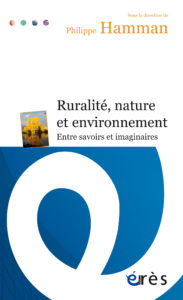
German Colonial Wars and the Context of Military Violence
by Susanne Kuss
Publisher: Harvard University Press
Recommended by Louie Dean Valencia-García
Susanne Kuss’s German Colonial Wars and the Context of Military Violence reminds us that history, and the ways that we remember the past, is always contested. In her book, Kuss takes to task assertions that Germany’s actions in the colonies reverberated back to both Operation Barbarossa and the Holocaust. Most famously argued by historian Isabel Hull in Absolute Destruction: Military Culture and the Practices of War in Imperial Germany (2005), the prevailing thesis argued for “a model that identified a general tendency on the part of the German military to make swift recourse to violence in the pursuit of radical, absolute solutions. Genocide and extermination were thus not the product of extreme ideologization, but the outcome of institutionalized yet unformulated standard military practices.” While most studies have focused on the Herero and Nama War in German South-West Africa, which resulted in a genocide, less attention has been paid to the Boxer War in China and the Maji Maji War in German East Africa, where genocide did not result. Kuss shows that officers who returned from service in the colonies were too few to shape the outlook and thinking of the bellicose and genocidal culture of the German army in any significant way. Kuss forcefully argues no direct comparison can be made. Nevertheless, German Colonial Wars does not leave us with all the questions answered, as the author points to questions of whether colonial soldiers joined and contributed to the German Freikorps movement. This well-researched book will make historians of Germany, European colonization, and fascism question not just accepted history, but confront what might be a tectonic shift in the historiographical understanding of the impact of Germany’s colonial wars back home.

Ruralité, nature et environnement. Entre savoirs et imaginaires
by Philippe Hamman (ed.)
Publisher: Editions érès
Recommended by Hélène B. Ducros
It is no surprise that this book emerges out of a group of researchers in France where agricultural livelihoods remain a focus in public policy and rural landscapes and lifestyles continue to be central in social imagination. Rurality, nature, and environment are terms that appear simple and that everyone understands intuitively. However, defining them is an arduous task, especially since, as this book shows, definitions evolve as societies change. The edited volume not only delves into the ways in which these conceptualizations have changed in the last 30 years, but it also seeks to explain how they relate to each other. By triangulating these key concepts the interdisciplinary contributions also uncover how the rural, the natural and the environmental get appropriated by individuals and societies in different spatial, cultural, and economic configurations. As “operating categories,” the three notions reveal a “new rurality” where tourism and the peri-urban blur the usual dichotomies of nature-culture, urban-rural, preservation-development, and production-consumption.
Positioning agriculture as an actor in shaping social relations in both rural and urban areas, the chapters collectively envisage both the rural and the urban through the relationship between nature and environment. In addressing territorial development issues in the face of changing rural identities and representations, the book places rurality at the forefront of environmental concerns and the sustainability agenda. As the Common Agricultural Policy regularly comes under fire in Europe, this book helps to understand the different stakes, actors, and interests in the three-part relationship between rurality, environment, and nature, addressing themes such as food production, green agriculture or pastoralism. By highlighting how environmental history and the history of societies are co-constructed, the book positions rural studies at the heart of the discussion on the Anthropocene and the understanding of humanity as a “geological factor.”
Published on April 4, 2017.




